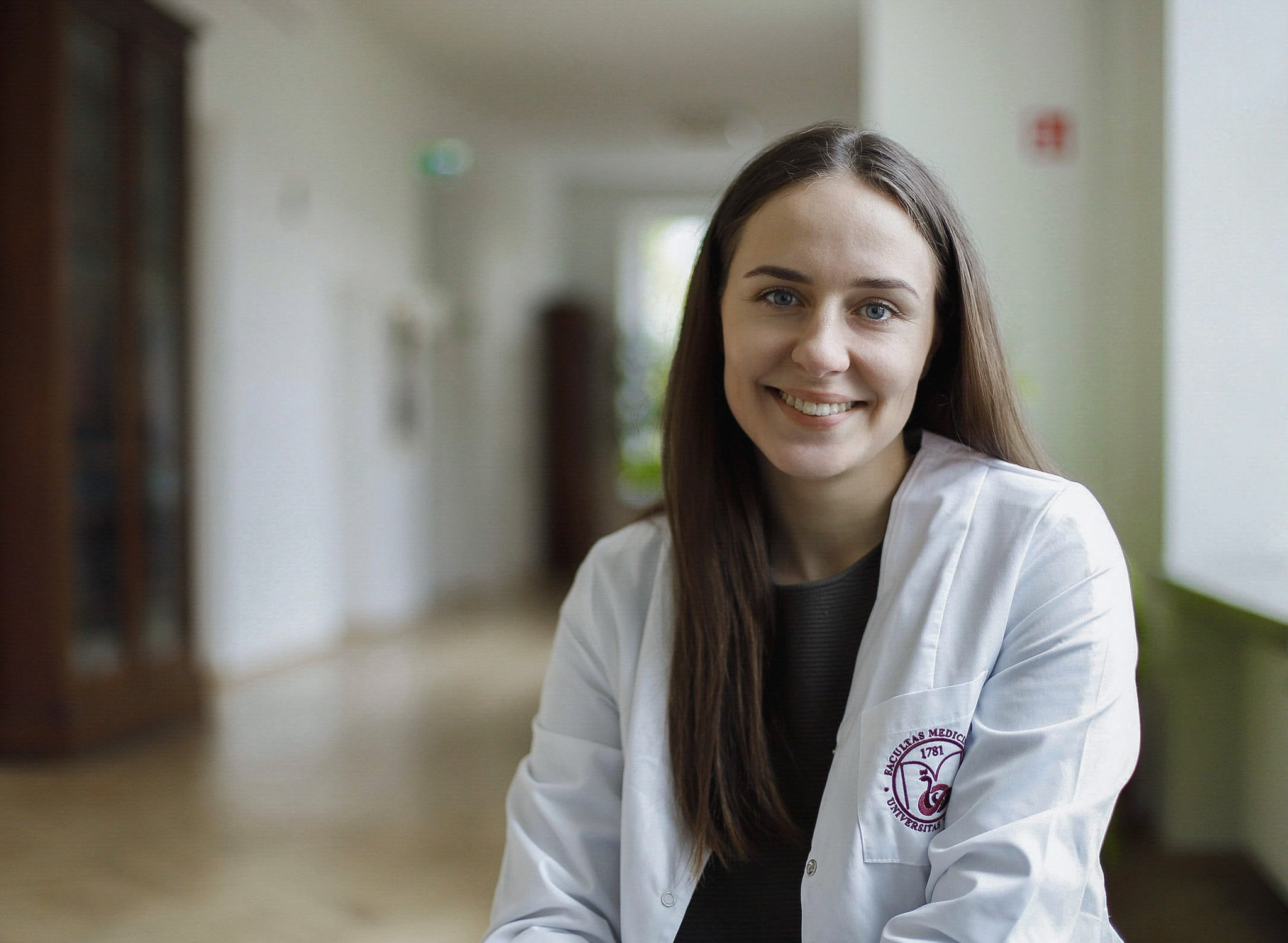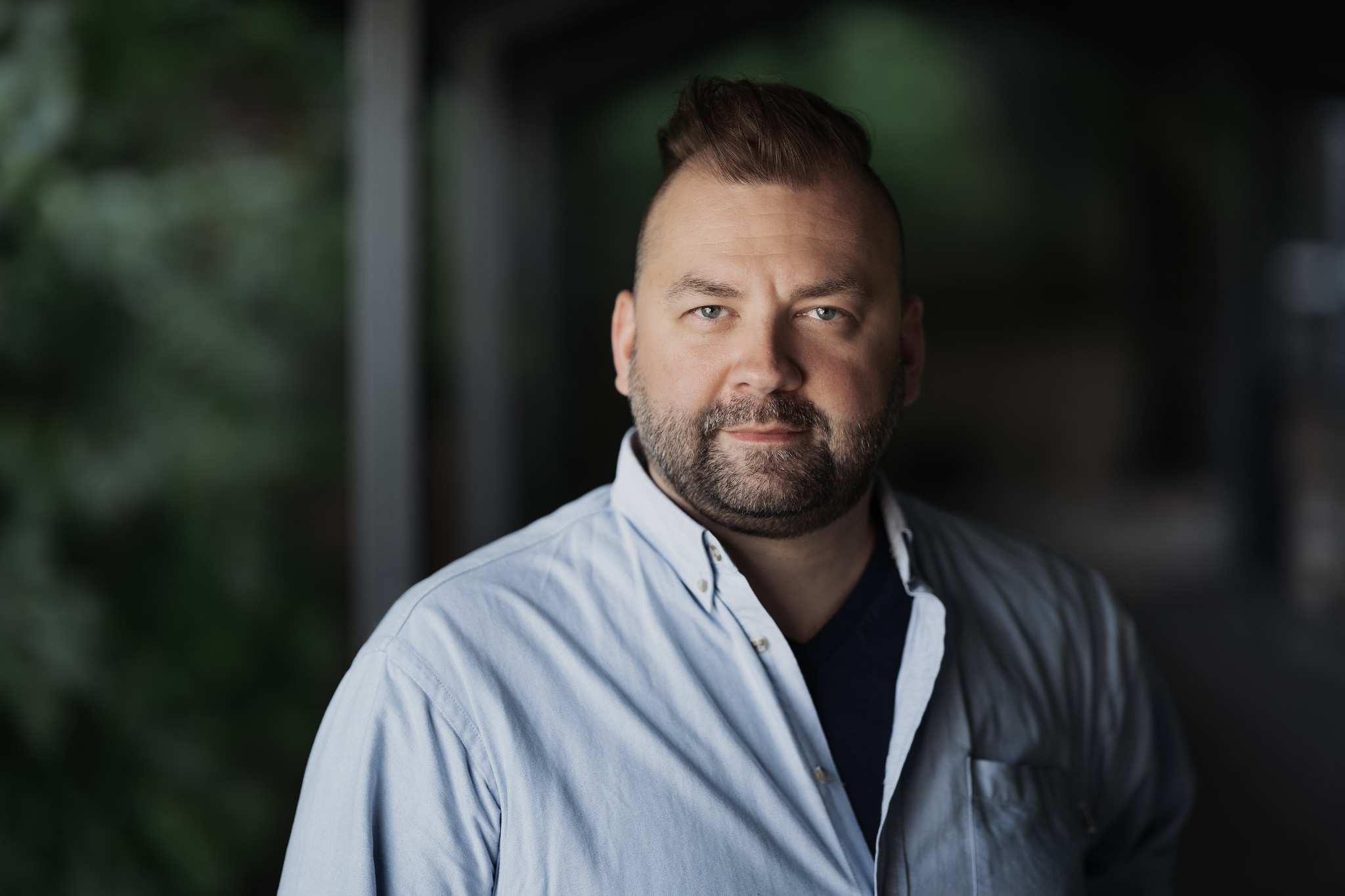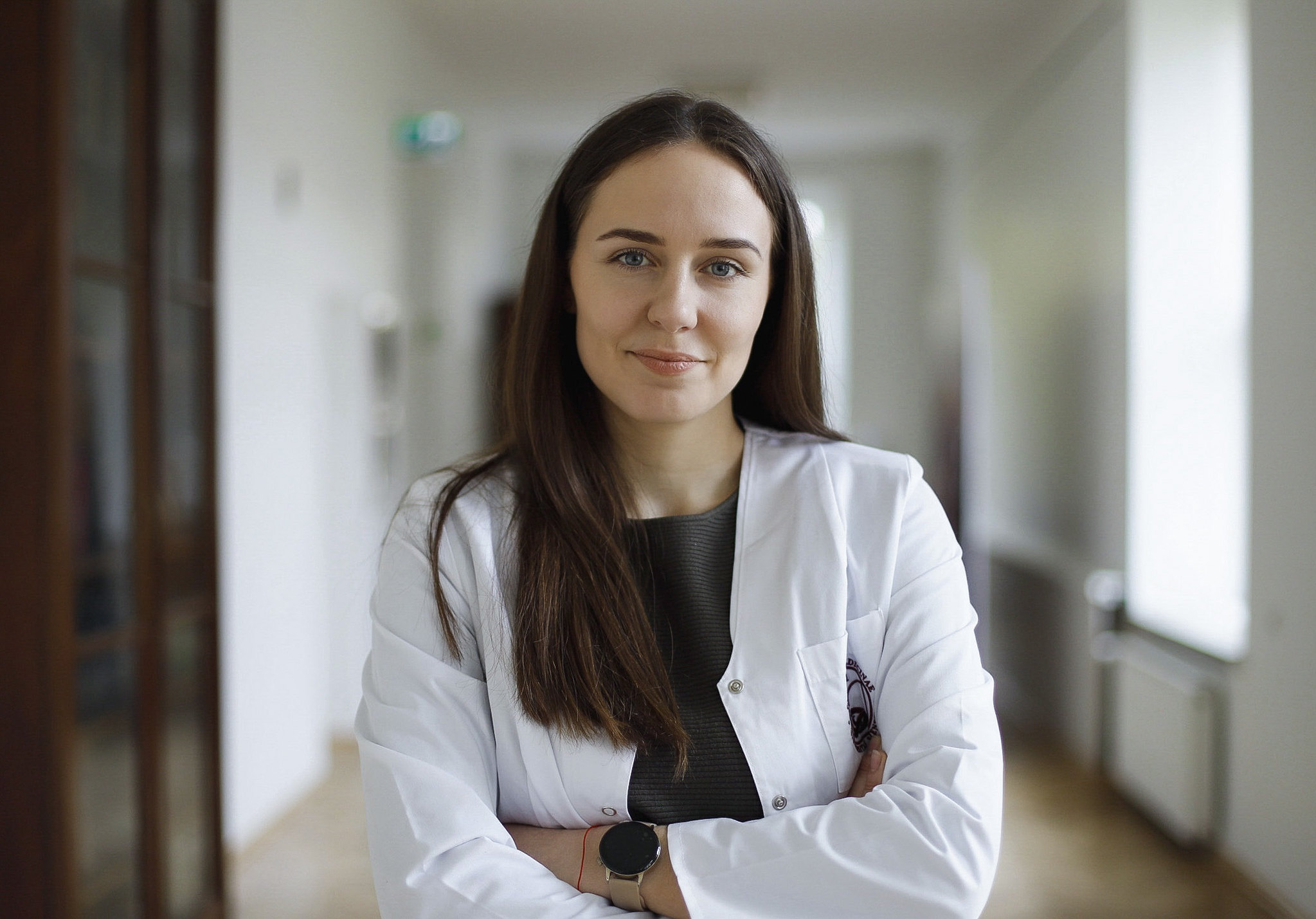 Vilita Vainauskaitė, a first-year student in the Advanced Practice Nursing Master's Program at the VU Faculty of Medicine / MF archive
Vilita Vainauskaitė, a first-year student in the Advanced Practice Nursing Master's Program at the VU Faculty of Medicine / MF archive
The Demand for Nurses: What It Takes to Choose This Profession and Career Opportunities
A 2023 updated study by the Government Strategic Analysis Center (STRATA) predicts that by 2032, Lithuania will face a shortage of 4,643 general practice nurses, 2,355 nursing assistants, and 1,328 advanced practice nurses.
Vilnius University (VU) Faculty of Medicine first-year student in the Advanced Practice Nursing Master's Program, Vilita Vainauskaitė, along with Faculty of Medicine Health Sciences Institute Nursing Department lecturer Marius Čiurlionis, discuss the reality of the nursing profession, the requirements to become a nurse, and the career opportunities that open up by choosing this challenging yet meaningful path.
The Prestige of the Profession Still Faces Challenges
According to VU Faculty of Medicine professor M. Čiurlionis, the current perception of nurses has undergone significant changes – negative narratives associated with the profession and competencies are no longer prevalent.
“Nurses are independent team members, taking on more and more functions, especially in primary health care. After completing nursing studies, a person can choose their desired career path: remain in clinical work, pursue an academic career, become an administrator, or even a researcher. There are indeed many opportunities, and it all starts from the first day at university,” explains the professor.
M. Čiurlionis notes that policymakers’ attitudes toward the nursing profession are also changing rapidly: “With the decreasing number of nurses, efforts are being made to encourage people to choose this profession. Investments are made in education, training bases, and work infrastructure, and the Minister of Health has even mentioned state scholarships for those studying nursing.”
 Marius Čiurlionis, professor at the Department of Nursing, Health Sciences Institute, VU Faculty of Medicine / VU archive
Marius Čiurlionis, professor at the Department of Nursing, Health Sciences Institute, VU Faculty of Medicine / VU archive
According to the professor, increasing the prestige of the nursing profession still poses challenges: “The first thing we need to do is conduct an information campaign targeted at healthcare institution administrators and the general public. Greater involvement from health policymakers is needed. Increased responsibilities and job functions should be associated with significantly higher salaries.
We need to develop nurses' competencies not only related to their direct work but also to professional behavior, i.e., communication and social skills, understanding patient needs, and empathy. We also need to review the requirements for professional qualification improvement. If we truly aim to develop nurses' competencies, we need to increase the number of contact hours. Distance learning should constitute no more than 10%, and academic hours no less than 50%. Only this way can we ensure the growth of the nursing profession's prestige.”
However, according to M. Čiurlionis, each choice to study nursing makes it easier to overcome obstacles: “Career opportunities are vast, and the wage policy predicts one of the highest salary increases in the public sector for nurses in the future.”
Upon completing nursing studies at the university, the lecturer says that it is easy to pursue master’s and doctoral studies without needing any additional studies or courses: “At Vilnius University, students have the opportunity to develop strong analytical thinking skills.”
A Flexible Profession
V. Vainauskaitė is a first-year student in the Advanced Practice Nursing Master's Program. While still in her final year of undergraduate studies, Vilita started working in a clinic providing outpatient nursing and palliative care services at home. During the academic year, she worked as a nursing assistant, and after completing her bachelor's studies, she began working as a nurse.
“I continue these jobs to this day, combining them with my master's studies. I have chosen to provide nursing services at patients’ homes. My patients are mostly elderly people or those suffering from incurable, progressive diseases,” explains V. Vainauskaitė. She says she wants to continue working in this field after completing her studies.
According to Vilita, a person aspiring to this profession should not only be caring, extremely patient, empathetic, and compassionate but also have a strong character: “In this job, you often encounter the worsening condition of patients, sometimes even death. It’s emotionally difficult. You need to remain rational, accept the situation, cope with it, but also be able to empathize and understand the patient’s relatives.”
Nevertheless, the student believes that the nursing profession is very flexible: specialists can realize themselves in various fields, such as providing outpatient or inpatient nursing services, working in state or private institutions, being a subordinate, or holding a managerial position.
“You can also work in surgery, intensive care, therapeutic or procedural departments, work alongside a specialist doctor, or even independently provide services at patients' homes. You can choose to work with children, adults, or the elderly,” lists Vilita.
The Student Does Not Regret the Circumstances
V. Vainauskaitė notes that there is still a prevalent belief that university programs are more theoretical.
“I would like to dispel this myth: 50% of the nursing study program at Vilnius University consists of professional practice. This was one of the reasons why I chose these studies at VU,” she says.
 Vilita Vainauskaitė, a first-year student in the Advanced Practice Nursing Master's Program at the VU Faculty of Medicine / MF archive
Vilita Vainauskaitė, a first-year student in the Advanced Practice Nursing Master's Program at the VU Faculty of Medicine / MF archive
When choosing where to study, VU had just restored a modern nursing training program, which caught her interest.
“My study cohort was the first of this new program. The bachelor’s study years went excellently, I gained sufficient practical and theoretical knowledge. In the final year of my bachelor's studies, I had the opportunity to practice at the Ministry of Health, as well as at Santara Clinics. I also did one of my practices in my hometown of Šiauliai, where I had the chance to try myself in surgical nursing. It’s great that the university encourages its students to gain diverse practice experiences,” shares Vilita.
According to the student, it is no secret that there is a shortage of healthcare specialists in the regions. She believes that being able to choose practice locations in other cities increases the likelihood that future healthcare specialists will choose to continue working in regional cities.
V. Vainauskaitė says she is confident about her future and happy with the meaningfulness of her chosen profession.
“When I had to be hospitalized a few times myself, very friendly nurses took care of me. I remember counting the days until their shift (laughs). Meanwhile, doctors seemed rushed, only managing to visit in the morning... I realized that nurses spend the most time with patients.
There are two groups of people: some think that working as a nurse requires a calling, others believe it’s not necessary. To be honest, during my studies, I encountered various examples. However, people who choose this profession out of a sincere desire to help and care for others enjoy their work more, regardless of financial or other resources,” assures the master's student in the Advanced Practice Nursing program.
